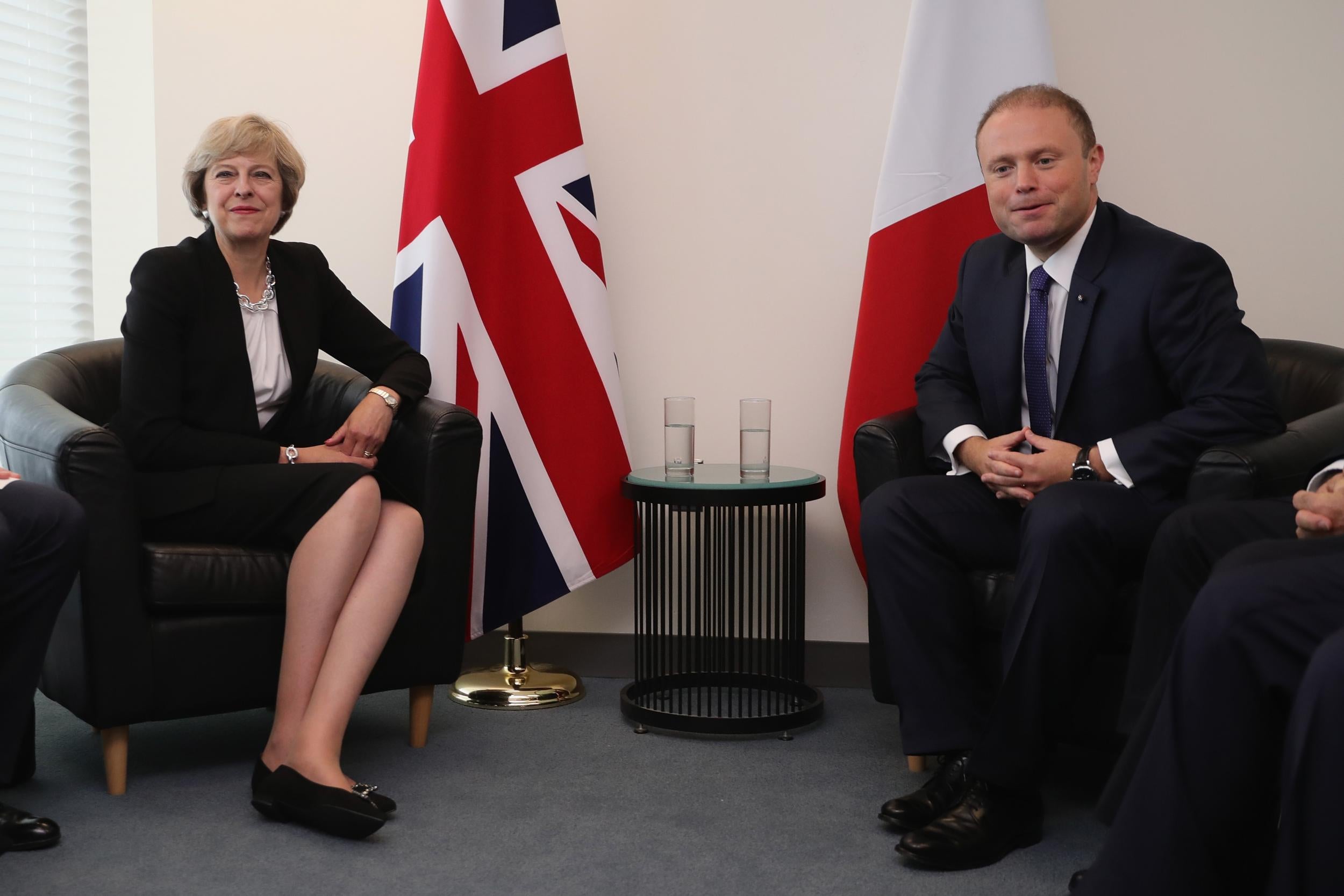UK will be treated 'like Greece' and get tough deal during Brexit talks, says Malta's PM
Joseph Muscat expects UK to be left with 'fair' but 'inferior deal' after negotiations

Your support helps us to tell the story
From reproductive rights to climate change to Big Tech, The Independent is on the ground when the story is developing. Whether it's investigating the financials of Elon Musk's pro-Trump PAC or producing our latest documentary, 'The A Word', which shines a light on the American women fighting for reproductive rights, we know how important it is to parse out the facts from the messaging.
At such a critical moment in US history, we need reporters on the ground. Your donation allows us to keep sending journalists to speak to both sides of the story.
The Independent is trusted by Americans across the entire political spectrum. And unlike many other quality news outlets, we choose not to lock Americans out of our reporting and analysis with paywalls. We believe quality journalism should be available to everyone, paid for by those who can afford it.
Your support makes all the difference.The UK will be treated “like Greece” and will have little chance of getting its own way during next year’s Brexit negotiations, the Prime Minister of Malta has said.
Joseph Muscat will chair the EU’s rotating presidency next year, during which time Theresa May intends to trigger Article 50 and begin the process of withdrawing the UK from the Union.
The Maltese PM said he expects the UK to be left with a “fair” but “inferior deal” by the end of formal negotiations and stressed that a united front will be taken by the EU’s 27 remaining nations.
“Even the most pro-UK countries - the Netherlands, Estonia, Ireland - say you cannot have your cake and eat it”, Mr Muscat said in an interview with Politico Europe. “Expect the format to be more or less like what happened with Greece.”
Greece suffered during bailout negotiations in 2015 due to a hardline approach from EU member states, which saw the Greek PM Alexis Tsipras forced to accept a difficult austerity package.
“From my discussions with the UK government, they seem to want [to negotiate by] chapters. They want to look at the single market, at sovereignty, at freedom of movement, at transposition of EU laws,” Mr Muscat continued.
“The feeling I get is that it is unacceptable to most member states. They want the single market and freedom of movement to be tackled together.”
Mr Muscat added that the European Commission “will lead the negotiating but the crux will be in the member states”.
He said the European Parliament “cannot be underestimated” in the Brexit process and that the assembly’s decision to appoint former Belgian PM Guy Verhofstadt as its chief negotiator “sends a very clear political signal.”
Theresa May ended weeks of speculation by telling the Conservative Party conference she intends to launch formal Brexit talks before the end of March 2017.
The value of the pound fell to its lowest level against the dollar as Ms May indicated she may push for a ‘hard Brexit’ including tough controls on immigration.
Subscribe to Independent Premium to bookmark this article
Want to bookmark your favourite articles and stories to read or reference later? Start your Independent Premium subscription today.
Join our commenting forum
Join thought-provoking conversations, follow other Independent readers and see their replies
Comments